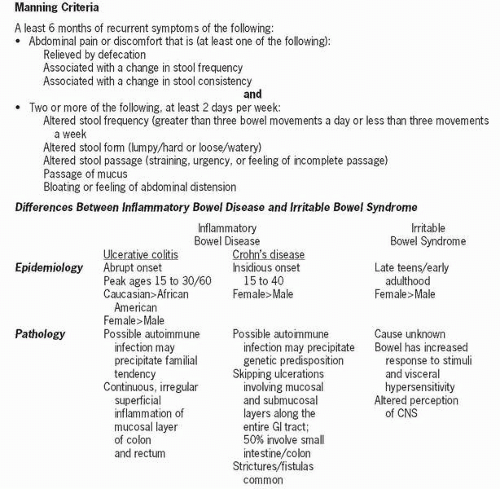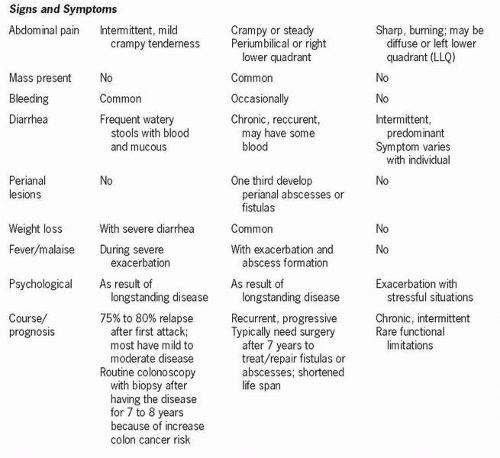Irritable Bowel Syndrome
Irritable bowel syndrome (IBS) is a chronic functional gastrointestinal (GI) disorder characterized by periods of exacerbation often associated with stress. It is an alteration in bowel habits and abdominal pain without any structural abnormalities. In the United States it is more common in women, usually beginning in late adolescence or early adulthood. It is the most common GI disorder found in the primary care setting, accounting for 50% of all visits to gastroenterologists. Most patients are able to function with little or moderate difficulty, whereas only 5% are seriously debilitated by the disorder.
IBS is a poorly understood chronic condition that causes abdominal pain relieved by defecation. It is associated with changes in bowel habits (either constipation or diarrhea predominate) and abdominal distension. The etiology of IBS is unknown and it cannot be diagnosed with laboratory, endoscopic, or radiological studies. The condition is diagnosed
by excluding other conditions, most notably the inflammatory bowel disorders, and by the Rome III criteria (Table 45-1), a pattern of symptoms that must be present for 12 weeks within 12 months, but does not need to be consecutive.
by excluding other conditions, most notably the inflammatory bowel disorders, and by the Rome III criteria (Table 45-1), a pattern of symptoms that must be present for 12 weeks within 12 months, but does not need to be consecutive.
Table 45-1 Rome III Criteria | ||||
|---|---|---|---|---|
|
Stay updated, free articles. Join our Telegram channel

Full access? Get Clinical Tree




